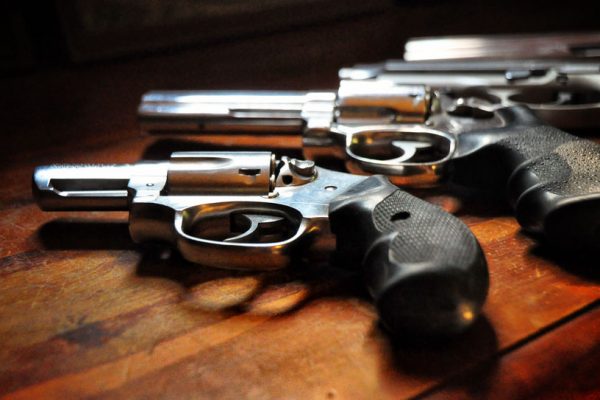Terrorism: Why Are We So Afraid to Call It Out?
Many terrorists, recent and distant, have used firearms to carry out their crimes. (ROD WADDINGTON VIA FLICKR)
November 16, 2017
On Oct. 1, 2017, the United States was shaken to its very core by one of the deadliest mass shootings in modern history, resulting in a total of 58 people dead and 546 people injured. This horrific act was committed by a single man, Stephen Paddock, age 64, who shot repeatedly into a crowd of concertgoers from the window of his 32nd floor room at the Mandalay Bay Hotel in Las Vegas. His hotel room was stockpiled with 23 rifles—12 of which were fitted with bump fire stocks that simulate fully automatic gunfire—and one handgun, along with a large supply of ammunition, showing his intent to kill on a large scale.
Just a little over a month later, on Nov. 5, 2017, the United States was once again hit with a mass shooting. Devin Patrick Kelley, age 26, used a Ruger AR-556 semi-automatic rifle to kill 26 people who were attending a Sunday church service at The First Baptist Church in Sutherland Springs, Texas. The victims ranged from one to 77 years old.
Despite all these facts, many news outlets claim that there were no known terrorist connections with either shooting—that these were just some “lone-wolf” gunmen. Hearing these reports, I found this claim to be very troubling because it shows a continuance of a pattern that has been ongoing since 9/11. We address horrific acts carried out by Islamic radicals as terrorist attacks but refuse to acknowledge the ones that are perpetrated by white American citizens. This shows blatant disregard for the heinous acts of homegrown terrorists, many of whom happen to be white.
When it comes to defining what terrorism is or what makes a terrorist, the lines become blurred. According to the Merriam-Webster Dictionary, terrorism is the systematic use of terror, especially as a means of coercion. In other words, it is the use of violence and intimidation to create an environment of fear and paranoia. This definition is somewhat vague and hard to apply as this term is used by the media and politicians for certain incidents, like the attack on the Twin Towers on 9/11, but it was not used when Stephan Paddock shot 604 people. The same can be said for the use of the word terrorist, because what truly constitutes a terrorist? Who is one? Who is not?
Growing up in the post-9/11 United States, I was taught that terrorists were these foreign people—these radical Muslims—that wanted to hurt me and take away my way of life. At the time, that made sense because that was what I was seeing, but as I grew older I began to see the flaws within this explanation. I was witnessing atrocious acts that were being committed by U.S. citizens, and no one was calling them terrorists or calling the situations acts of terrorism.
Looking at these recent incidents, it is appalling to me that we are not calling this an act of terror. These men, these terrorists, committed violent acts with the purpose of inciting fear. Why is it that we are so quick to justify violent acts committed by these white Americans with excuses—such as they were mentally ill, had a troubled past, etc.—instead of calling it what it is: terrorism? Are we so afraid to admit that we have terrorists living amongst us that we will do anything to deter from using that term?
As a country, we need to own up to the fact that terrorists are not just foreign groups that attack from the outside, but they can be citizens in this country, too. We need to come to the realization that a terrorist can be a white, Christian American citizen. We need to hold these people accountable on the same level as we do with foreign individuals and groups whom we are so quick to label as terrorists. We should not be so afraid to face this reality and say these men—these American citizens—were not “misunderstood, lone-wolf” gunmen. They committed acts of terrorism.










